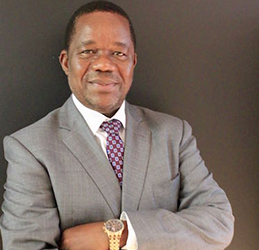
The month of March is celebrated as the Human Rights Month in South Africa, a period designated to draw attention to the importance of promoting human rights of all citizens.
Human Rights Day in South Africa is historically linked with 21 March 1960, and the events of Sharpeville.
On that day, 69 people died and more than 180 injured when police fired on a peaceful crowd that had gathered in protest against Pass laws.
Although South Africa has made remarkable progress in safeguarding basic human rights in the past 23 years, there is no doubt that a lot still needs to be done in this area.
The South African Human Rights Commission (SAHRC) is the national institution established to support constitutional democracy and protection of human rights for all those who live within the country’s borders.
The Commission’s chairperson Bongani Majola says the body uses several tools to ensure that there is a constant promotion and deepening of a human rights culture across society.
These include litigation, advocacy, review of legislation, awareness and dialogue.
In an interview with SAnews recently, Majola said Human Rights month offers South Africans a chance to take stock of the progress made and challenges faced in championing human rights.
He made reference to a case which the SAHRC undertook in 2013 in support of the people of Klipgat, Section C in Brits, North West against their Local Municipality, Madibeng.
In 2013, the community was without water for weeks, sparking the commission’s intervention.
“We took a case against the Madibeng municipality where they had the habit of providing the community in Klipgat, C Section with very weak streams of water which were therefore inadequate.
“Sometimes they would cut the water for a week. So we brought an interdict against them forcing the authorities to make sure that there is adequate flow of water.”
Majola says the Klipgat case is one amongst many examples which demonstrates the need for the SAHRC to uphold human rights on an ongoing basis especially for the poor and most vulnerable in society.
Lessons from Life Esidimeni tragedy
Majola also commented on the much-publicised Life Esidimeni tragedy which led to the death of more than 100 mentally ill patients in Gauteng.
His comments came just days after the damning Esidimeni arbitration judgement, delivered by former Deputy Chief Justice Dikgang Moseneke, found that the decision to cancel the contract with healthcare facility, Life Esidimeni was irrational and unconstitutional.
About 144 mentally ill people died as a result of being transferred from Life Esidimeni to various unlicensed NGOs across Gauteng.
Majola says there are lessons to be learned from the tragedy.
“The lesson we have learnt is that everyone’s rights are important and that there will be accountability. We must learn to treat people equally and treat them with dignity no matter who they are,” says Majola.
Majola says while the country has come a long way in doing away with discriminatory laws, it is the attitude of society that needs to change in order to combat problems around violence, sexism and racism.
“The attitude of society needs to change. We need to work on how we speak to our girl children and what we say to them and not discourage boy children when they take up chores which are predominantly seen to be for women for example.”
“We also need to have dialogue and debates about race and equality where we engage one another on what is right and wrong. If we increase the understanding, especially amongst young people, we plant the seeds of observance of the right to equality.”
Majola says while many citizens were aware of their rights, the responsibility to uphold these rights does not solely lie with the SAHRC as a constitutional body but with every citizen granted these rights.
“Our education efforts with regards to teaching people about their rights has been effective. Many people are aware of their basic human rights, such as the right to water, healthcare, housing and they will advocate for those rights on their own.
“It was late last year that we sat down and said there is something we are not including in our education and that is the element of responsibility,” says Majola.
“We have now begun to say to people that you have this right but you also have certain obligations. It going to take long because teaching people anything takes time but it is a message that we should include.”
Human Rights a co-operative effort
While the SAHRC is the constitutionally mandated body on human rights, Majola says its success lies on the principle of co-operation in all the spheres of government that exercise the muscle of delivery.
“Apart from our own measures such subpoenas and through courts, we rely on government to use their muscle to enforce, either through ministers and their departments or the police.
Government spends a lot of money funding the Chapter 9 institutions, but that money gets wasted when the work of these institutions is simply ignored with impunity, says Majola. – SAnews.gov.za


